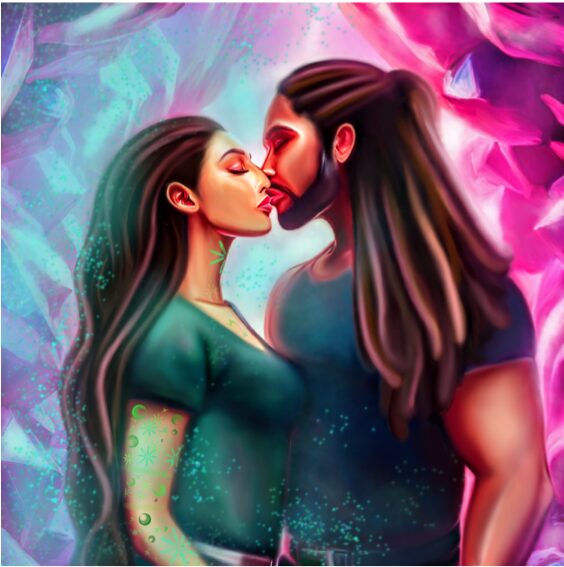
Introducing Fae-Fi
There are lots of exciting things afoot in my world: a book release date to announce, a book launch party to plan for and plenty of illustration work to get stuck into. With the release of ‘Ferrishyn’ imminent, I thought it might be nice to kick the blog off with a little bit about Fae-Fi.
The ‘Fae’ part refers to my love of folklore and all things a little bit supernatural and strange.
The ‘Fi’ part is an allusion to Sci-Fi, another genre that I love.
My writing is a fusion of everything I’ve enjoyed reading over the years and is also heavily influenced by my studies at UCL. During my undergraduate and postgraduate degrees, I had the privilege of working with medieval manuscripts in the British Library and spent many hours in the Warburg Institute reading rare and esoteric books. My interests were (and remain) in mythology, folklore and demonology.
‘Ferrishyn’ is framed in Celtic mythology, with the addition of folk and fairytale creatures from across the British Isles. I also invented a language system that’s a bastardised form of Latin and borrowed some words from Gaelige and Gaelic. I’ve included a note on language at the end of each book and my rationale behind these choices, because I know that several authors have caught flak recently over this issue.
‘Ferrishyn’ is set across five planes of existence: Tír Tairngire, Earth, Eamhain, Mag Mell and Fomoria. The first book is set in Eamhain, Mag Mell and Earth. Eamhain is roughly equivalent to Elphame or the fairy realm of medieval literature, but also corresponds to Emain Ablach, a paradisical land from Irish mythology. Mag Mell is a similar realm from Irish mythology, a paradise beyond death.
It made sense to me that these ‘otherworlds’ could be different planes of existence from which Fae folk visit Earth from time to time (explaining all the fairy stories and sightings that the British Isles are so famous for). And this idea of multiple dimensions definitely has a Sci-Fi feel to it, so I took that feeling and ran with it.
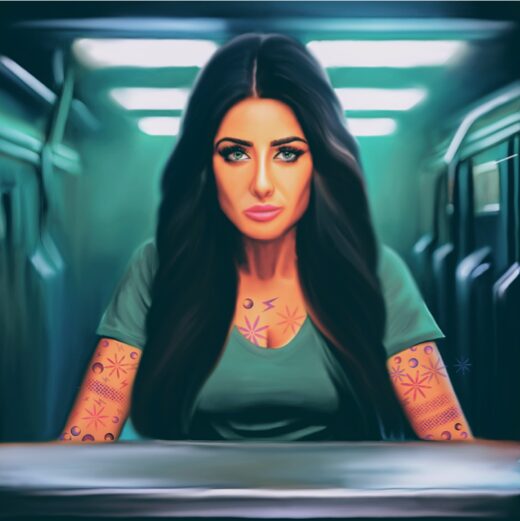
At some point everyone has to choose. There’s no such thing as neutrality. Even failing to choose is a choice in itself.
In ‘Ferrishyn’, Earth is dying following a nuclear war and climate breakdown in the not-too-distant future. What remains of humanity is hiding in a massive bunker complex underground, but their life-support systems are failing, and the humans must find a way to leave Earth. In response to this crisis, scientists open the Shift, an inter-dimensional portal (think ‘Stargate’ meets fairy ring) between Earth and Eamhain.
Humans being what they are, the USUK alliance decides to invade Eamhain, the beautiful, unspoiled land of the Ferrishyn folk, and colonise it, rather than attempt to settle peacefully. But the Fenodyree (a type of small fairy who live in Eamhain) form a resistance, and war soon breaks out between them and the humans.
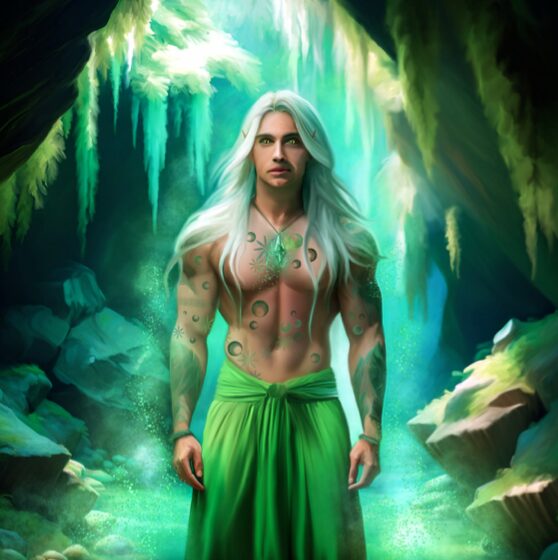
“Peace and death same thing in the end.” Dea’s voice is quiet. “vult Serpentissima, e.”
“As Great Serpent wills it.” Defela echoes in English for Reid’s benefit.
The Fens wage a type of guerilla warfare, using the magic of adderstone to shift between planes. By moving across to Mag Mell, they make themselves invisible to the human soldiers, even with all their technology. The Fenodyree then set traps and ambushes to counter their bigger, better armed and better trained enemy. There are obviously many real-world parallels to this type of fighting (Vietnam and Afghanistan being just a couple of examples) and I’ve been fortunate to have support from soldiers who’ve fought on the frontline to write key battle sequences and discuss tactics, as well as drawing upon my own experiences.
This, I hope, has enabled me to create a human force that feels real, with equipment and organisation that’s recognisable and, at the same time, slightly alien, technologically superior to anything we have in our world right now.
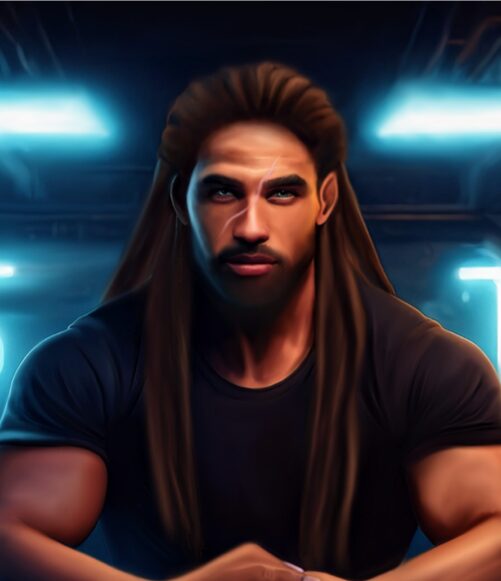
How many of USUK’s soldiers no longer trust their President? How many of them are tired of fighting?
Although ‘Ferrishyn’ is a romance, the entire trilogy is about war. Life in theatre has an intensity that can’t be replicated elsewhere and I wanted to convey both the highs and lows of service life, as well as the cost (to both sides) of armed conflict. There are obviously many horrors in war, but there’s also comradeship and love. Writing about soldiers gave me a chance to explore the deep bonds of friendship that form between men in this extreme environment, as well as the romantic connection between my main protagonists; Jacob (a USUK soldier) and Lucile (a displaced human, who can use magic and was raised by the Fenodyree).
Setting the books within a fairytale world allowed me to work with lots of different possibilities and to ground my bloody, futuristic, dystopian adventure in the familiarity of old stories. I tried to imagine what it would be like if the fairy realm really existed and what would happen if humans, with their heavy reliance on technology, came up against magic on the battlefield. I also wanted to play with the dichotomies between dominion and connection, science and faith.
And this is where folklore and Sci-Fi meet to become Fae-Fi.
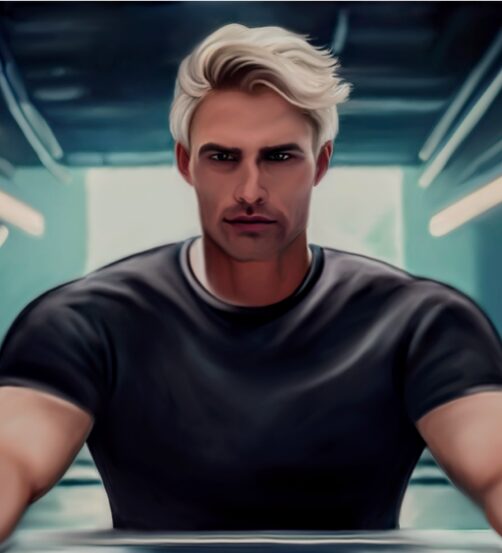
“There’s no escape that way, sweetheart.” Vox’s malevolent smile widens. “If you try and hide, I’ll find you. Remember that.”
‘Ferrishyn’ is full of complicated, morally grey characters. There are often no right choices in the difficult situations that my main heroes (and villains) find themselves in – they just have to choose the least-worst option. And my ‘fairies’ aren’t small and sweet and mischievous, but the fearsome and slightly wicked creatures of myth and legend – too bad for heaven, but too good for hell…
If you’re looking for a simple Happy Ever After, ‘Ferrishyn’ isn’t the book for you!
The trilogy is an adult read: expect violence, threat, dubious consent and many other nasty realities. Although it starts with a nod to the dystopian coming of age books that are so popular in YA fiction, it soon becomes something else. Lucile is an unreliable narrator and characters’ motivations for their actions are not always what they seem to be. There are layers and complexities in the choices that my characters make, and the actions they take, that I hope mirrors the very real dilemma of trying to be good and honourable in a cruel and unjust world.
‘Ferrishyn’ is an exploration of difficult themes: ecocriticism, mental health, moral injury, sexism, racism and colonialism. While love and romance are at the heart of the story, it’s more than just Romantasy. Be prepared to like characters you should hate and empathise with those you despise.
‘Ferrishyn’ is intended to be read as a trilogy, with each book building upon the last and I hope you enjoy reading it as much as I enjoyed writing it.
Until next time…
In unity, there is nothing to dread.
Ivy x
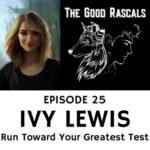 Previous Post
Previous Post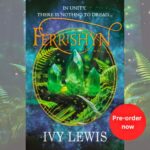 Next Post
Next Post